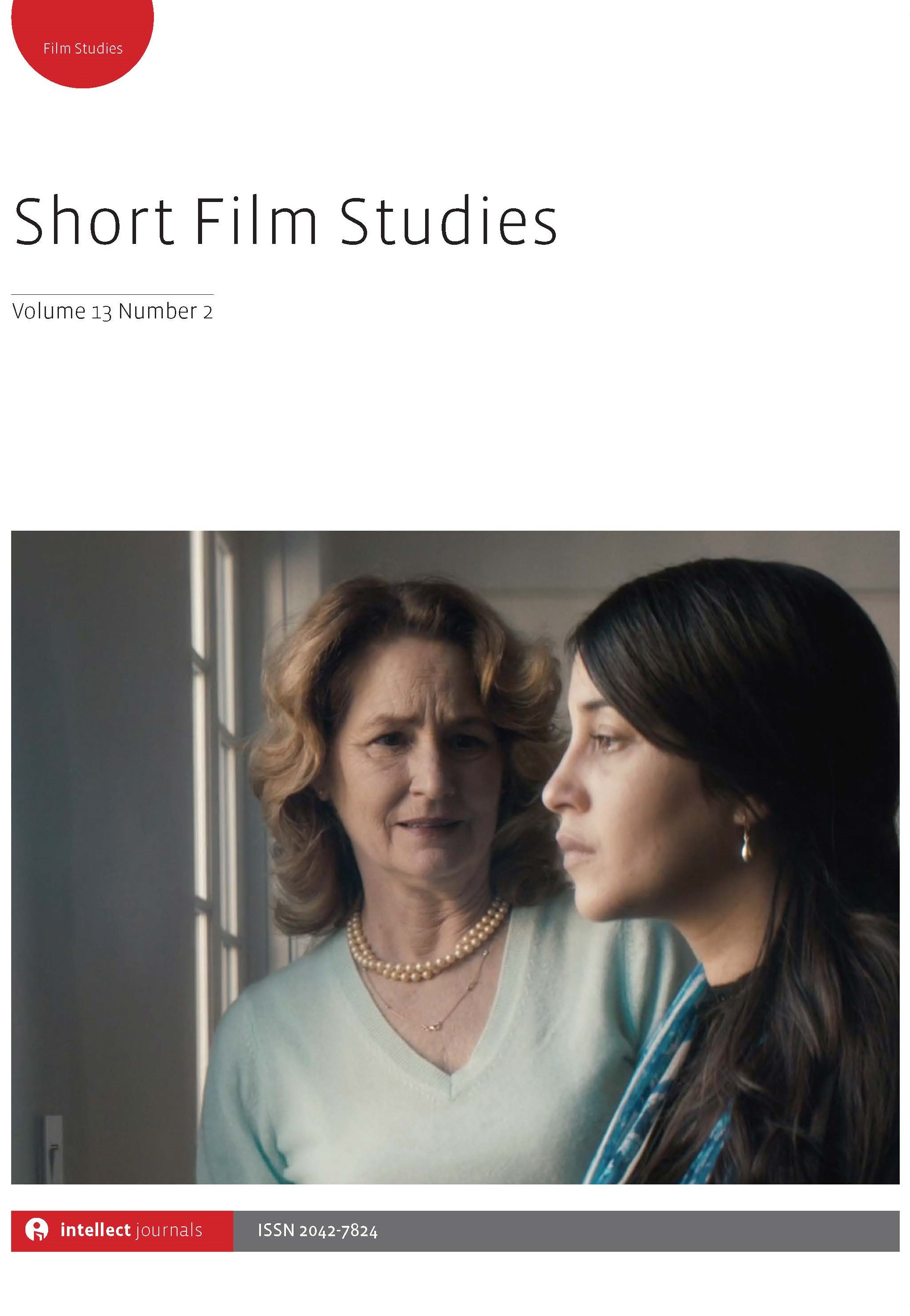- Home
- A-Z Publications
- Short Film Studies
- Previous Issues
- Volume 6, Issue 1, 2016
Short Film Studies - Volume 6, Issue 1, 2016
Volume 6, Issue 1, 2016
-
-
Possum’s cinematic space: Landscape, alienation and New Zealand Gothic
More LessBy Alfio LeottaAbstractPossum has often been read as a commentary on the sense of place and belonging in postcolonial New Zealand. This article proposes a semiotic analysis of the construction of space in Possum. In particular, it will examine the stylistic choices deployed by the director in relation to the notions of alienation and New Zealand Gothic.
-
-
-
The ambiguous voices of Possum
More LessBy Iben HaveAbstractA categorization of the levels of the soundtrack will provide the foundation for analytical notions on how the soundtrack of Possum challenges the recipient by operating in a field between diegetic and non-diegetic, realistic and supernatural, and human and animal sounds.
-
-
-
Porous rural spaces in Possum
More LessAbstractIn Possum, the New Zealand rural house and forest become porous spaces into which animality seeps not as abject, but rather as part of human development. Hence, the evocative images and atmospheric sounds of Possum mingle animality with humanity in ways that contaminate our understanding of ecological hierarchies.
-
-
-
Possum: The fractured family and turning animal
More LessAbstractPossum explores a series of dramatic contradictions between animal and human, the tame and the wild, family structure and unconstrained desires and between freedom and entrapment. An engagement with animality shapes the empathy of all involved. Interpreting the paradox of the trapped trapper sharpens the audience’s experience of the film’s depth.
-
-
-
Possum: A postcolonial feral allegory
More LessAbstractBrad McGann’s Possum has been described as a film about the primal relationship between individuals and their environment. This article draws upon Clark’s work on feral ecologies in the colonial peripheries to suggest that it can also be understood as a historically specific allegory about nineteenth-century imperialism and settlement in New Zealand.
-
-
-
The settlement trap
More LessBy Misha KavkaAbstractMcGann has characterized Possum as being about the relationship between the outsider and society that is central to his work. This article places that relationship in the national context of New Zealand as a project of settlement, and in the filmic context of the 1990s New Zealand Gothic.
-
-
-
The postcolonial Possum: A passed parcel
More LessAbstractBrad McGann studied in Australia, where the possum is protected, but at home in Aotearoa New Zealand the animal is a threat to native species. In Possum, the autistic child Kid arouses similarly conflicting emotions in her close-knit family providing a metaphor for the changes wrought by and on settlers.
-
-
-
Chora and the resurgence of the sensuous
More LessAbstractThis article reads Kid as Little Man’s connection to chora, the primordial maternal space where language is experienced as a phenomenon akin to birdsongs and animals’ howls, through which Little Man is inscribed into the world’s wild rhythms of movement and sound, and explores how this connection distorts the cinematic space.
-
-
-
Regarding human violence: The hard impact of cinematic soft power
More LessBy Mats JönssonAbstractWith the example of On Suffocation, this article problematizes how violence on film is represented and received. Ethical questions linked to the role and function of the viewer, medium and originator are at the centre of the analysis, and the writings of Susan Sontag function as conceptual backdrop.
-
-
-
On Suffocation: Audible space, visualized sound
More LessAbstractThis article will explore how the realistic sound in On Suffocation, devoid of dialogue and entirely restricted to the setting where the action takes place, still manages to connote meanings ranging from the psychological to the political, and thus supplements the visible image by breaking into visible space.
-
-
-
On Suffocation in the silence of things
More LessAbstractThe article discusses how On Suffocation explores a different mode of storytelling, which befits the short film format. As an existentially silent film it moves away from character construction as a linguistic being to the mute factuality of the body. The film shows that physicality tells its own story, signifies in its own way.
-
Most Read This Month


